|
BSG/ESGE Anticoagulation Guidelines on Endoscopy in Patients on Antiplatelet or Anticoagulation Therapy 2016
1. Assess bleeding risk
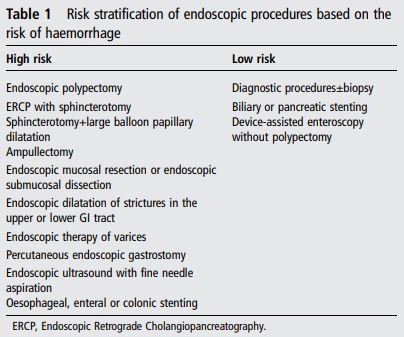
Source: BSG/ESGE
2. Assess thrombotic risk
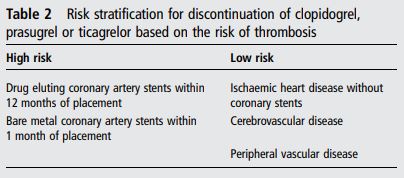
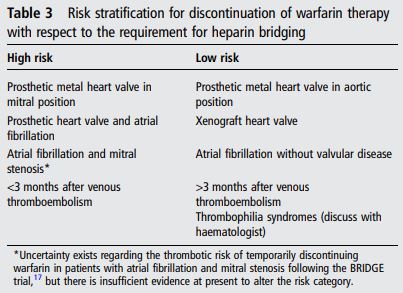
Source: BSG/ESGE
3. Bleeding vs thrombotic risk
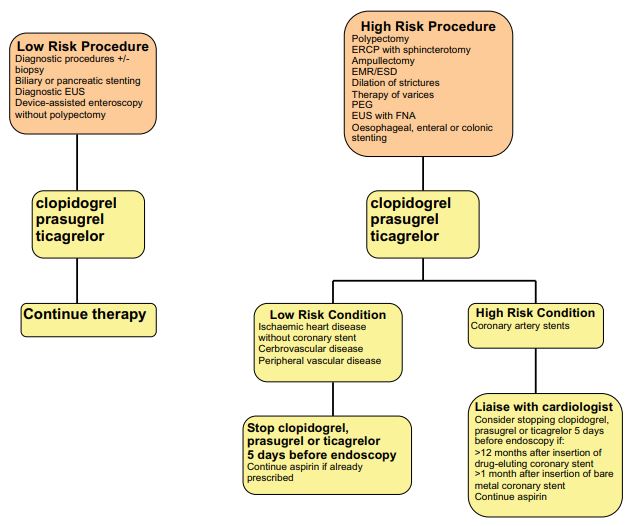
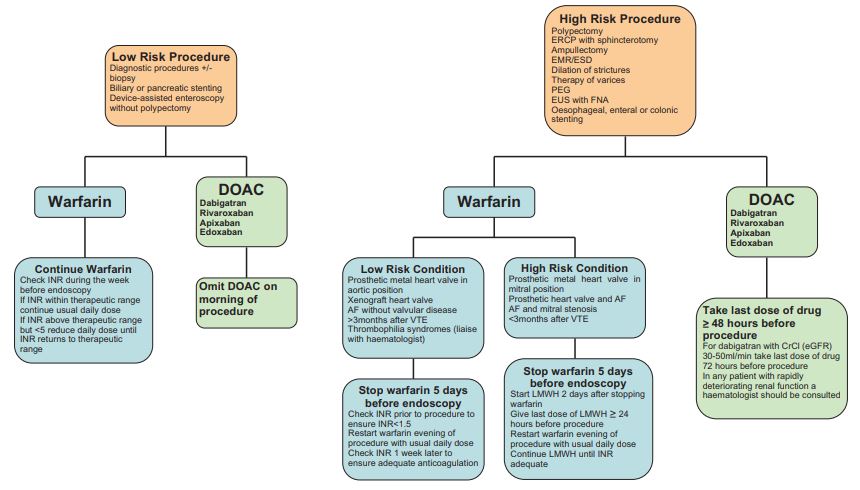
Source: BSG/ESGE
Aspirin can be continued for all endoscopic procedures except endoscopic submucosal dissection (ESD), large colonic endoscopic mucosal resection (EMR) (>2 cm), upper gastrointestinal EMR and ampullectomy, which should be considered case by case.
In summary,
Low risk procedures
- Antiplatelets: continue single or dual therapy.
- Warfarin: continue but INR must be checked to ensure it is not exceeding therapeutic range in the week before the procedure.
- Direct oral anticoagulants (DOACs): omit on day of procedure.
High risk procedures
Low thrombotic risk
- Antiplatelets: discontinue 5 days before procedure. If dual therapy, continue aspirin.
- Warfarin: discontinue 5 days before procedure and check INR <1.5 before procedure.
- DOAC: discontinue at least 48h before procedure (for dabigatran with eGFR 3-50, at least 72h). If rapidly deteriorating renal function, liaise with haematologist.
High thrombotic risk
- Antiplatelets: continue aspirin, liaise with cardiologist about other antiplatelets.
- Warfarin: bridge with LMWH. Advise increased risk of bleeding.
- DOAC: as above DOACs
4. Post-procedure
Resume therapy up to 48h after procedure.
References
Veitch AM, Vanbiervliet G, Gershlick AH, et al. Endoscopy in patients on antiplatelet or anticoagulant therapy, including direct oral anticoagulants: British Society of Gastroenterology (BSG) and European Society of Gastrointestinal Endoscopy (ESGE) guidelines. Gut 2016;65:374-389.
Author:
Ms Yanyu Tan
| Speciality:
General Surgery
| Date Added:
12/11/2019
|